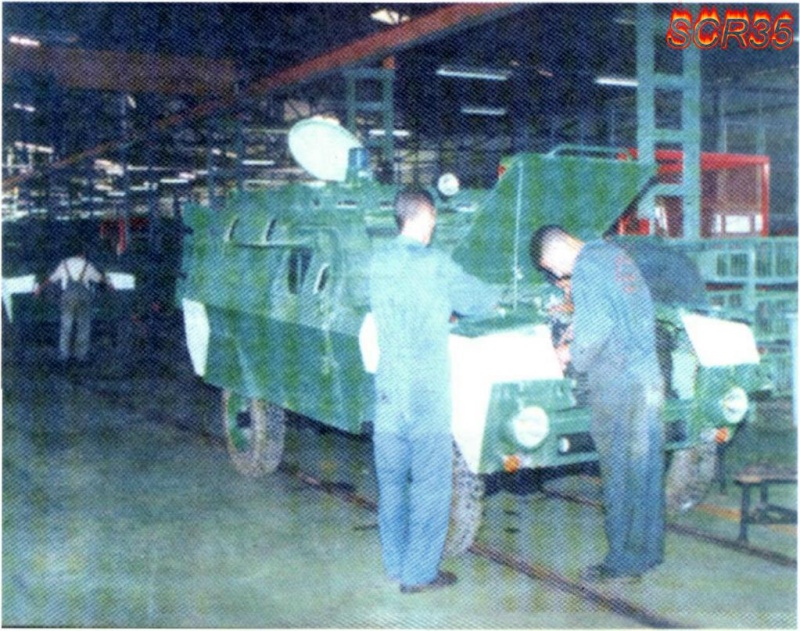 Algerian President Abdelaziz Bouteflika this month established two companies that will manufacture equipment for the North African country's military, a move aimed at building up an indigenous defense industry.
Algerian President Abdelaziz Bouteflika this month established two companies that will manufacture equipment for the North African country's military, a move aimed at building up an indigenous defense industry.Bouteflika's effort falls within a concerted drive across the Arab world to develop a regional arms industry that has gathered momentum in recent years.
The region's states are light years from being able to produce the kind of advanced weapons systems manufactured in the United States, Russia and Europe, and probably never will.
But they are forging ahead with producing a wide range of equipment for themselves, and for export to their neighbors.
The foremost arms manufacturer in the Middle East is Egypt, which produces U.S.-designed M1A1 tanks and other systems and assembles aircraft.
Its arms industry dates back to the 1820s when Egypt's ruler, Mohammed Ali, started factories producing small arms, artillery and small warships. The industry was modernized in 1957 when it became the National Organization for Military production under the Defense Ministry.
Saudi Arabia's military-industrial complex is still largely in its infancy. But one of the kingdom's main defense companies, the Armored Vehicles & Heavy Equipment Factory, began marketing two of its newest 4X4 light armored vehicles, the Shibi 1 (Lion Cub) and Shibi 2 to potential Middle Eastern customers.
Saudi Arabia has used its massive arms purchases over the years to encourage Western suppliers to set up manufacturing centers for military equipment within the kingdom as part of their contracts as part of its drive to diversify its oil-based economy and to reduce unemployment.
This is known as the offset process, and has been widely employed around the Gulf over the last two decades of buying advanced aircraft, armor, missiles and warships.
The United Arab Emirates in particular has developed a thriving defense industry largely based on offset ventures.
Its manufacturing base is largely confined to electronics and specialized equipment, but Abu Dhabi Ship Building, in which the government is a major shareholder, is now producing French-design corvettes and other vessels.
Indeed, its emergent defense industry is attracting personnel from Saudi Arabia these days as it surges ahead with joint ventures aimed at a region-wide market.
The loss of designers and engineers appears to be hurting the Saudis, who have been complaining that they are facing problems in recruiting and retaining their top personnel.
Jordan, too, has an emergent arms industry, championed by King Abdullah, a former special forces commander.
The resource-poor Hashemite kingdom's leading company is the King Abdullah II Design and development Bureau, known as KADBB.
It was established in 1999 to provide an indigenous defense, science, technical, engineering development and manufacturing facility for Jordan's military.
It has largely concentrated on upgrading and remanufacturing armored vehicles and producing security vehicles and land-based weapons systems.
Its latest project is a joint venture with U.S.-based investment house RiverHawk Worldwide to build and market the AMP-137 Advanced Multi-Mission Platform Vessel design to Jordan's forces and other Middle Eastern states.
According to decrees issued by Bouteflika's office in mid-July, the two state-owned companies being set up in Algeria will supply the army with all-terrain vehicles and electronic systems.
The first, to be known by its French acronym EDIV, will carry on a contract initially signed with an Italian company for a factory in Tiaret, northwestern Algeria, to produce commercial vehicles.
The plant will design, develop and manufacture the all-terrain vehicles to meet the army's requirement.
"Such needs would probably include armored protection against improvised explosive devices and attacks against security patrols that have become the hallmark of the insurgent activity in Algeria coordinated by al-Qaida of the Islamic Maghreb," according to Jane's Defense Weekly.
The decrees and Algeria's state media gave few details of the electronics company, but Jane's said "it is thought that GPS, radar and tracking would be among the most likely systems to be manufactured."
Bouteflika's military-backed government has had some modest success in its efforts to establish a defense industry. Two factories produce small arms, including automatic rifles and machine guns, ammunition, generators and medical supplies.
The army has also developed its own maintenance facilities for military aircraft, both fixed-wing aircraft and helicopters.
During Algeria's civil war throughout the 1990s, with the military pitted against Islamist insurgents, most of the world's main arms suppliers refused to sell Algeria weapons. The embargoes were lifted after September 2001.
No comments:
Post a Comment